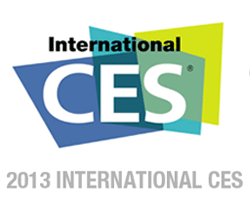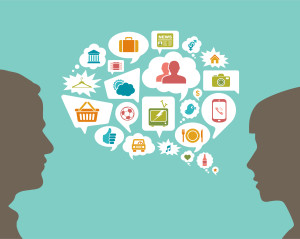
Digital health is attracting the likes of Bill Clinton, Lupe Fiasco, Deepak Chopra, Dr. Sanjay Gupta, Arianna Huffington, and numerous famous athletes who rep a growing array of activity trackers, wearable sensors, and mobile health apps. Will this diverse cadre of popular celebs drive consumer adoption of mobile health? Can a “cool factor” motivate people to try out mobile health tools that, over time, help people sustain healthy behaviors?
Mobile and digital health is a fast-growing, good-news segment in the U.S. macroeconomy. The industry attracted more venture capital in 2012 than other health sectors, based on Rock Health’s analysis of the year-in-review. Digital health was a rising theme at the 2013 Consumer Electronics Show (CES), attracting luminaries like Dr. Gupta, Arianna Huffington, and Dr. Reed Tuckson of UnitedHealth Group (explaining in the link ‘why’ United, a health insurer, is at the CES).
 At South-by-Southwest in Austin, mobile and digital health took over parts of several venues throughout the crowded town. Even the traditionally professionally and institutionally-focused health information technology conference, HIMSS (the Health Information and Management Systems Society), hosted first-time discussions on consumers and patient-facing health technology in March 2013. Furthermore, HIMSS acquired the mHealth Summit in 2012 to enhance its position in mobile health.
At South-by-Southwest in Austin, mobile and digital health took over parts of several venues throughout the crowded town. Even the traditionally professionally and institutionally-focused health information technology conference, HIMSS (the Health Information and Management Systems Society), hosted first-time discussions on consumers and patient-facing health technology in March 2013. Furthermore, HIMSS acquired the mHealth Summit in 2012 to enhance its position in mobile health.

On the supply side, there’s a sort of irrational exuberance in the market. It’s a chaotic cornucopia overflowing with digital health tracking devices (see my Battle of the (wrist)Bands post on CES2013). There are new-new permutations of personal emergency response systems to respond to the cries of “I’ve Fallen and I Can’t Get Up.” Mobile phone apps are proliferating, and remote monitoring tools starting to receive FDA approval. Increasingly, mobile health solutions are emerging from developers that haven’t been traditionally associated with health “care,” from telecomms companies like Verizon and Samsung to hackers seemingly more comfortable at the Maker Faire than at Medical School.
The consumer demand side for mobile health is trickier to sort out. The Pew Internet & American Life Project‘s health survey, led by Susannah Fox, found in Tracking for Health that while 7 in 10 U.S. adults track some aspect of health for themselves or a loved one, 21% use some kind of technology to self-track health. One-half of people do this “in their heads,” but there is momentum underneath moving people toward more digital forms of data capture that (1) makes self-tracking over time much easier and (2) enables people to become more mindful of daily micro-choices through regular reminders of tracked activities, whether moving, eating, exercising, blood sugar tracking, and other personal health metrics.
 The number of people self-tracking may be the tip of a larger iceberg, as Ernesto Ramirez and Gary Wolf of Quantified Self (QS) point out in The Health Care Blog in their post, The State of Self-Tracking. Ernesto and Gary know from their work with fellow QS members that people monitor lots of activities beyond what they might perceive as “health care” versus “health” metrics. Still, all of these activities bolster overall health and wellbeing.
The number of people self-tracking may be the tip of a larger iceberg, as Ernesto Ramirez and Gary Wolf of Quantified Self (QS) point out in The Health Care Blog in their post, The State of Self-Tracking. Ernesto and Gary know from their work with fellow QS members that people monitor lots of activities beyond what they might perceive as “health care” versus “health” metrics. Still, all of these activities bolster overall health and wellbeing.
Because of the blur between health and health care, market forecasts that offer definitive projections of absolute numbers on market sizes for digital health, mobile health, health tracking, et. al., can cover a wide range. But this is normal M.O. in an emerging, nascent market.
Regardless of the absolute value of the mobile/digital health market, we can ask the following questions to help us lean into a rational forecast:
- Will a growing supply of mobile health products, tools and apps, induce demand among consumers?
- On the health IT regulatory wonky side of the calculation, will the HITECH Act’s Meaningful Use provisions that incentivize health care providers (hospitals and clinicians) to engage patients with their health information motivate providers to “prescribe” mobile health tools?
- Will changing health payment regimes, such as value-based health plans, employer wellness programs, and accountable care organizations begin to inspire health providers to recommend self-care strategies that keep people well at home — such as remote health monitoring and mHealth apps?
- Will socialization of mobile health tools adopted by the first (QS) and second (activated self-care patients) generation of digital health adopting consumers spread their use to friends and families?
And to the opening question: will visible popular figures associated with digital health projects help inspire their use among mainstream consumers?
 Health Populi’s Hot Points: I traveled from New Orleans to Austin (with a stop in between to kiss my family hello and goodbye) earlier this month, shuttling between HIMSS and SXSW to participate in panels at both conferences on digital health and self-tracking. At the former, I led a panel called Building Patient 2.0 featuring representatives from BodyMedia and Meridian Health System. The objective of this panel, which attracted standing-room-only attendance of hospital and clinical professionals at HIMSS, was to inspire the health ‘care’ community on the promise of consumer-facing health devices and patient engagement. At SXSW, I participated on a panel addressing the sitting disease: Sitting Will Kill You: Can Mobile Save Us?
Health Populi’s Hot Points: I traveled from New Orleans to Austin (with a stop in between to kiss my family hello and goodbye) earlier this month, shuttling between HIMSS and SXSW to participate in panels at both conferences on digital health and self-tracking. At the former, I led a panel called Building Patient 2.0 featuring representatives from BodyMedia and Meridian Health System. The objective of this panel, which attracted standing-room-only attendance of hospital and clinical professionals at HIMSS, was to inspire the health ‘care’ community on the promise of consumer-facing health devices and patient engagement. At SXSW, I participated on a panel addressing the sitting disease: Sitting Will Kill You: Can Mobile Save Us?
For both sessions, the answer is, no, mobile alone cannot save us: “health” is co-created by the consumer in concert with her/his environment – social, environmental, nutritional, economic, spiritual…personally project-managed based on how the individual defines their personal health ecosystem.
“Cool” might motivate some people to try on a mobile health tool, app or device. It’s a start, along with full-on consumer-centered design. But it’s collectively the larger ecosystem, and especially social touchpoints, that helps people sustain ongoing healthy choices and moves the needle on personal health. Mobile health may be necessary, but it certainly isn’t sufficient.
 This post was written to celebrate the first March mHealth Madness Blog Championship sponsored by DICOM Grid (#mHealthMadness on Twitter).
This post was written to celebrate the first March mHealth Madness Blog Championship sponsored by DICOM Grid (#mHealthMadness on Twitter).




 Thanks to Feedspot for naming this blog, Health Populi, as a
Thanks to Feedspot for naming this blog, Health Populi, as a